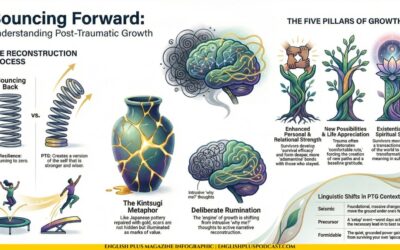Social Entrepreneurs: The Rebels with a Cause – and a Business Plan
Imagine a world where businesses aren’t just about profits, but also about purpose. Where entrepreneurs tackle poverty, inequality, and environmental degradation with the same passion they pursue financial success. This is the world of social entrepreneurship, where innovation meets compassion to create lasting change.
Think of it like this: Traditional entrepreneurs are like sprinters, focused on reaching the finish line (profit) as quickly as possible. Social entrepreneurs, on the other hand, are marathon runners. They have their eyes on the long game, building businesses that not only generate revenue but also address social or environmental problems.
Profit with a Purpose
Social entrepreneurs aren’t your average business owners. They’re driven by a deep desire to make a difference in the world. They create businesses that are both financially sustainable and socially impactful. It’s a win-win scenario where profit fuels purpose, and purpose drives innovation.
Take, for example, the story of Muhammad Yunus, the founder of Grameen Bank. He saw the devastating impact of poverty in Bangladesh and developed a revolutionary microcredit model that empowered millions of women to lift themselves out of poverty. His work earned him the Nobel Peace Prize and inspired a global movement of microfinance institutions.
The Ripple Effect of Social Entrepreneurship
Social entrepreneurship isn’t just about individual success stories. It’s about creating a ripple effect that transforms entire communities and industries.
Consider the impact of TOMS Shoes, a company founded on the simple idea of giving a pair of shoes to a child in need for every pair purchased. This “One for One” model sparked a wave of social entrepreneurship, inspiring countless other businesses to adopt similar giving-back initiatives.
Social entrepreneurs are tackling a wide range of issues, from providing clean water and affordable healthcare to promoting education and environmental sustainability. They’re not just creating jobs; they’re creating opportunities for marginalized communities, empowering individuals to take control of their lives, and inspiring others to join the movement for change.
Your Call to Action
So, what can you do? You don’t have to start a multi-million dollar social enterprise to make a difference. Here are a few ways to get involved:
- Support Social Enterprises: Buy from businesses that prioritize social and environmental impact.
- Invest in Change: Consider impact investing, which allows you to support businesses that align with your values.
- Volunteer Your Skills: Offer your time and expertise to help social entrepreneurs scale their impact.
- Spread the Word: Share stories of social entrepreneurship and raise awareness about the power of business to create positive change.
Remember, every action, no matter how small, can contribute to a better world. By supporting social entrepreneurship, you become part of a global movement that is redefining the role of business in society. You become an agent of change, a catalyst for a brighter future.
Why Should You Care?
Understanding social entrepreneurship is important because:
- Empowering Change: It showcases how individuals can make a real difference in the world by combining business acumen with social consciousness.
- Inspiring Action: Learning about successful social enterprises can motivate you to take action on issues you care about or even start your own venture.
- Supporting Solutions: By understanding this model, you can make informed choices about where to spend your money, invest, or volunteer, directly contributing to positive change.
- Economic Growth: Social enterprises often create jobs and boost local economies, particularly in underserved communities.
- Sustainable Future: These businesses prioritize long-term solutions and sustainability, crucial for addressing global challenges.
Key Takeaways
- Purpose Over Profit: Social entrepreneurs prioritize social or environmental impact alongside financial sustainability.
- Innovation for Good: They use innovative business models to address pressing issues, often finding creative solutions where traditional approaches have failed.
- Ripple Effect: The impact of social enterprises extends beyond their immediate beneficiaries, creating positive change in communities and inspiring others.
- Everyone’s Role: You don’t need to be an entrepreneur to support this movement. You can contribute as a consumer, investor, volunteer, or advocate.
Keywords & Definitions
- Social Entrepreneurship: The use of business principles to create ventures that address social or environmental problems.
- Social Impact: The positive effect a business or organization has on society or the environment.
- Sustainable Business: A business model that focuses on long-term viability, considering environmental and social impacts alongside financial performance.
- Impact Investing: Investing in companies or organizations with the intention of generating social or environmental impact alongside financial return.
- Changemakers: Individuals or organizations actively working to create positive social or environmental change.
- Microcredit: The lending of small amounts of money to individuals or groups with limited access to traditional banking services.
- One for One Model: A business model where for every product purchased, a similar product or service is donated to someone in need.
- Marginalized Communities: Groups excluded from mainstream society due to factors like poverty, discrimination, or disability.
- Social Innovation: The development and implementation of new ideas, products, or services that address social needs.
- Social Enterprise: An organization that applies commercial strategies to maximize improvements in human and environmental well-being.
Frequently Asked Questions
- How do social enterprises measure their impact? Social enterprises use various metrics to measure their impact, including social return on investment (SROI), which quantifies the social value created per dollar invested.
- Are social enterprises always non-profits? No, social enterprises can be for-profit or non-profit. The key distinction is their focus on social or environmental impact alongside financial sustainability.
- How can I find social enterprises to support? Look for certifications like B Corp, which indicate a company meets rigorous social and environmental standards. Many online directories and resources also list social enterprises by sector or cause.
Myth Buster
- Myth: Social enterprises can’t be profitable.
- Reality: Many social enterprises are highly profitable. They demonstrate that doing good and doing well financially are not mutually exclusive.
Let’s Talk
- What are some of the biggest challenges you see facing social entrepreneurs today?
- How can we encourage more young people to consider careers in social entrepreneurship?
- What role do you think governments should play in supporting or regulating social enterprises?
Share your thoughts and join the conversation below. Let’s explore how we can all contribute to a world where business is a force for good!










0 Comments